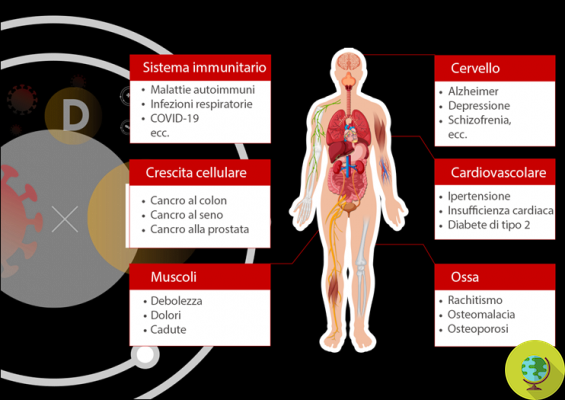
Vitamin C may be effective against covid but only under certain conditions. This is revealed by a new study
Don't store avocado like this: it's dangerousVitamin C may be effective against covid but only under certain conditions. This was revealed by a new study conducted by researchers from the University of Augusta.
Since the beginning of the pandemic there have been many researches on vitamins, in particular on vitamin D, the deficiency of which now seems to be related to greater risks and lethality of the virus. Now a new study has examined vitamin C for the treatment of COVID-19 and according to the results it may benefit some people, but it is more effective if the levels of the natural transporter needed to bring it into the cells are good. .
Age, race, gender, but also the expression levels and genetic variations of vitamin C transporters. All of these factors can affect the effectiveness of therapy against covid and other diseases, the researchers say.
The coronavirus has prompted researchers around the world to seek effective treatments. These also include substances with known safety profiles, including vitamin C, a powerful antioxidant and immune system helper, making it a logical choice to explore.
At least 30 clinical trials are underway in which vitamin C, alone or in combination with other treatments, is being evaluated to combat Covid, some with doses up to 10 times higher than those recommended (65 to 90 milligrams per day) . Among the possible limitations is the ability of this vitamin to enter cells, as pointed out by Dr. Carlos M. Isales, co-director of the MCG Center for Aging and head of the MCG division of Endocrinology, Diabetes and Metabolism.
Indeed, without adequate transporters on the cell surface capable of passing the water-soluble vitamin beyond the lipid layer of cell membranes, particularly high doses can allow it to group outside the cells.
In particular, scientists suspect that the low expression of the transporter is responsible for the conflicting results of the use of vitamin C. Clinical trials in osteoarthritis, for example, have obtained uncertain results but its use for other virus-induced problems has shown benefits. These include improved lung function in acute respiratory distress syndrome, a leading cause of illness and death with COVID-19.
"We believe it is important to consider the expression of transport," says Dr. Sadanand Fulzele, researcher on aging and author of the study.
Fulzele and colleagues showed that some conditions, such as osteoarthritis and even normal aging, are associated with significant downregulation of at least one subtype of the vitamin C transporter. Indeed, part of the paradox and concern about COVID-19 relate to the fact that people most at risk of Covid often have lower levels of vitamin C before they get sick and fewer transporters that allow the vitamin to benefit. They are mainly the elderly and those suffering from steoarthritis, hypertension and diabetes.
Furthermore, according to the scientists, patients can develop vitamin C deficiency during COVID-19 disease because it is consumed at a faster rate during an active infection. Although not done routinely, today the expression of the transporter can be measured using PCR technology. Although increasing transporter expression is not yet feasible in humans, one of Fulzele's many research goals is to find a drug or other method to directly increase expression, which should improve the health of older individuals and those with other medical conditions that compromise their levels.
The researchers hope that their research outcomes will be taken into account in the design and execution of other clinical trials. At the moment the same authors doubt that taking a lot of vitamin C is a good preventive strategy against COVID-19, except for those individuals with a known deficiency.
On the other hand, vitamin C is essential for our health so it is good to include in our diet those seasonal foods that are rich in it.
Sources of reference: Eurekalert, Aginganddisease,
READ also:
- Vitamin C: properties, deficiency symptoms, sources and daily dose
- 82% of Covid-19 patients have a vitamin D deficiency (and this could affect the onset of the disease)
- Vitamin D's role in reducing coronavirus risk and lethality confirmed. I study


























